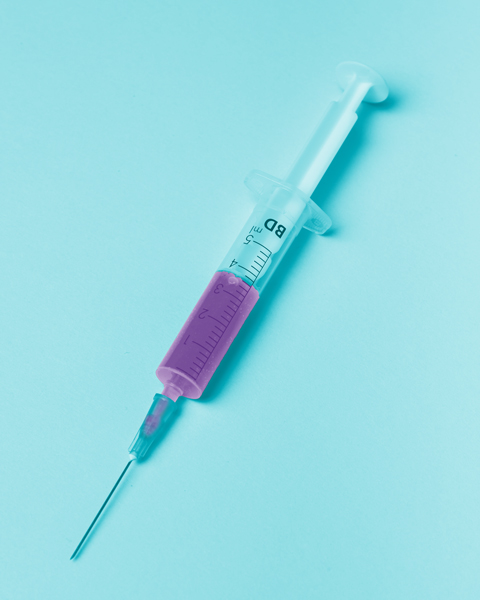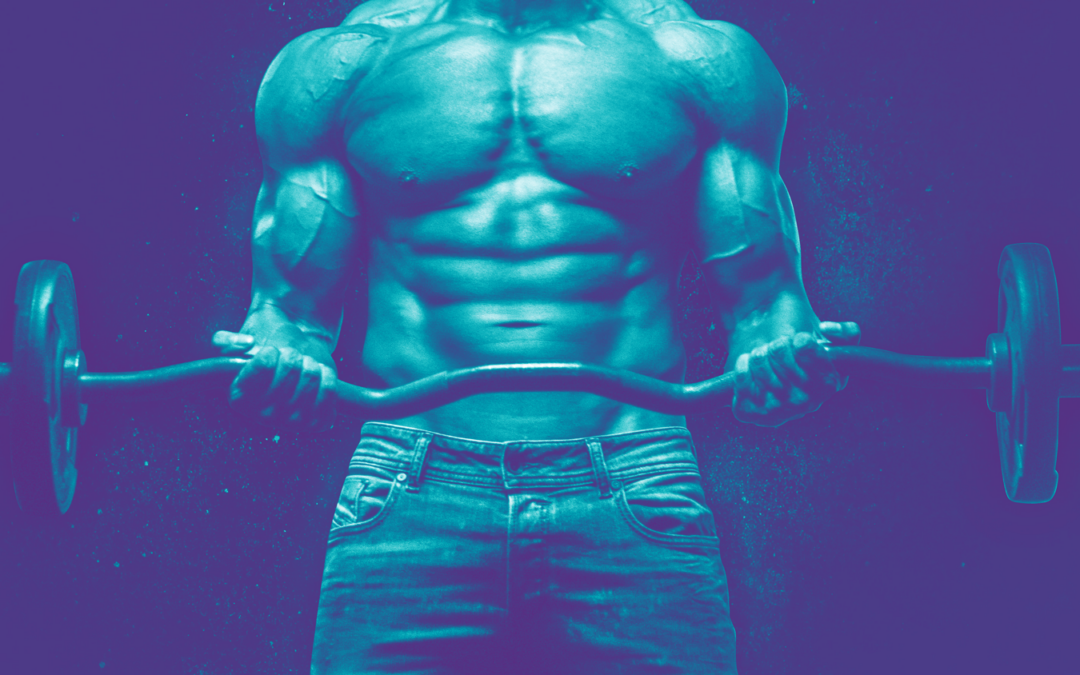Is it Possible to Develop a Steroid Addiction?
Steroids are a common type of drug used by people of all ages. While many varieties are safe and even beneficial for health and wellness, others can cause severe harm. Due to the versatility and widespread availability of these medications, steroid addiction can become a serious problem among teens and adults. Understanding the function, side effects and potential dangers of this powerful drug can help ensure proper use while preventing unhealthy dependence.

What are Steroids?
The term “steroid” is often used to label two very different types of drugs. While both can be used for medical purposes, there is a significant difference between each group.
Corticosteroids
A corticosteroid is a synthetic drug designed to mimic the performance of cortisol. This potent human hormone is responsible for a variety of vital functions, including controlling the body’s response to stress. Perhaps most significantly, it can also affect inflammation in the body, which is the primary goal of prescribing corticosteroids for certain medical conditions.
Anabolic Steroids
Like corticosteroids, anabolic steroids are manufactured to mimic naturally occurring hormones in the body. However, this type of drug is used to replicate testosterone. While the hormone is present in both genders, it is significantly more plentiful in males. Testosterone is responsible for maintaining reproductive function but also affects muscle and fat distribution and accumulation. Steroid addiction is most common with this type of drug.
Common Steroid Medications and Uses
In many situations, steroids can be used to significantly improve and even save lives. However, they can also be used improperly, leading to possible addiction and physical and mental harm.
Medical Use
Doctors prescribe both anabolic steroids and corticosteroids to patients with certain conditions. They are considered safe when used appropriately.
Anti-Inflammatory Function
Those who suffer from chronic asthma, allergies, arthritis, cancer or autoimmune diseases can benefit from the use of corticosteroids. These can lower inflammation in various systems of the body for improved function and efficiency. They are also prescribed to patients with recent organ transplants prevent the rejection of new organs. These drugs come in a variety of forms:
- Topical creams
- Inhalers
- Injections
- Ear or eye drops
- Nasal sprays
- Oral medications
A doctor will determine which type of prescription is best based on the patient’s age and history as well as the severity of the condition.
Testosterone Enhancement
When men suffer from low testosterone levels, it can have a detrimental effect on sexual development and performance, energy and mood. Doctors may prescribe an anabolic steroid to those whose medical testing reveals abnormally low amounts of testosterone in the body. It can also be used to help rebuild healthy muscle in patients who experience rapid or severe deterioration from disease or treatment.
Recreational Use and Abuse
As with many other drugs, steroids are incredibly potent and can have addictive properties. With corticosteroids, the body can develop a tolerance over time, especially if the dosage is too high or frequent. A false psychological dependence can also occur, as patients may develop the belief that they are unable to function without using the medication, even if symptoms have improved. It is important to consult a physician in these situations, as a high tolerance can render treatment less effective over time and may lead to drug abuse.
More frequently, people find themselves developing a steroid addiction when using the anabolic form of this drug. Some males may be tempted to use steroids to artificially boost testosterone to unhealthy levels to
- Improve athletic performance
- Build excess muscle
- Speed up weight loss
- Boost sexual performance
Anabolic steroids can be relatively easy to obtain. While injections may be more potent, the drug can also come in the form of pills, powders or topical treatments. Those who abuse steroids may utilize multiple forms to strategically alternate or overlap doses. These methods are usually intended to maximize results while supposedly lowering the risks of adverse side effects. However, any recreational use can be dangerous and destructive.
Steroid Addiction
Because steroids directly affect hormone production in the body, addiction can occur rapidly. Those who have been prescribed this type of drug should be mindful of the signs that a problem could be developing.
Warning Signs and Symptoms
Those who use corticosteroids should be wary of any anxiety surrounding the use of these drugs. A fear of missing a dose or decreasing use due to the suggestion of a physician could be a sign of unhealthy dependence that needs to be addressed. If the suggested dose stops producing beneficial or noticeable results, patients may be tempted to increase the dosage or frequency. However, this should never be done without first consulting the prescribing doctor.
People who become addicted to anabolic steroids may feel an uncontrollable urge to continue or increase use to achieve a better appearance or performance. Because wrongful use can cause the body to stop producing its own natural testosterone, depression is a common result. It can also deplete energy levels and lead to changes in appetite, libido and sleep.
Side Effects
When steroids are abused, a host of mental and physical complications can develop. Those who are addicted may become moody, irritable, and highly aggressive. Paranoia can develop and lead to delusional thinking and declined reasoning skills.
Over time, misuse of the drug can lead to serious health issues, such as
- Cardiovascular problems and disease
- Kidney or liver damage
- Stunted growth
- Increased cancer risk
- Blood clots
- Increased risk for HIV/Aids (when using injections)
In addition, improper use of anabolic steroids can lead to the opposite of desired results because of depleted natural testosterone production. This may cause
- Bone and muscle weakness
- Baldness
- Acne
- Infertility
- Shrunken testicles and breast development (in men)
It can also increase the risks of suicide, abusing other drugs and developing eating disorders.
Important Statistics
In general, steroid addiction is most frequent among men between the ages of 20 and 30. However, anyone who uses a cortico- or anabolic steroid is at risk for addiction with continued or non-recommended use. While some young teenagers may intentionally abuse steroids, this is more common in older children approaching adulthood.
Addiction Treatment and Recovery
While steroids may not pose as many short-term threats to health, wellness and safety, long-term use and addiction can be just as detrimental as other types of substance abuse. Fortunately, there are many treatment options available to those who suffer from this harmful habit.
When to Seek Help
At the first signs of steroid abuse or dependence, it’s critical to talk to a professional for help. The longer an addiction lasts, the more severe withdrawal symptoms may be, lengthening and intensifying the overall recovery process.
Treatment Options
As with handling any substance abuse issue, it’s important to work with professionals who can offer multiple approaches when treating addiction to steroids. Supervised detox may be coupled with medications to combat depression and withdrawal symptoms. Therapy is also an important aspect of recovery, and may be recommended in both individual and group settings. It’s also important to address underlying issues that lead to this specific type of addiction, including anxiety, previous trauma or poor self-image.
If you or a loved one are struggling with steroid addiction, there is help and hope. At Clean Recovery Centers, our experts can help you develop the ideal treatment plan that’s tailored to your specific situation and needs. Reach out to us today and take the first step towards recovery for a healthier, happier life.
Sources:
- https://www.healthline.com/health/corticosteroids-what-are-they
- https://www.drugabuse.gov/publications/drugfacts/anabolic-steroids
- https://medlineplus.gov/anabolicsteroids.html
- https://medlineplus.gov/steroids.html
- https://www.drugabuse.gov/publications/research-reports/steroids-other-appearance-performance-enhancing-drugs-apeds/who-uses-anabolic-steroids


